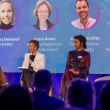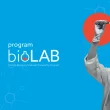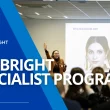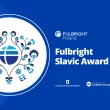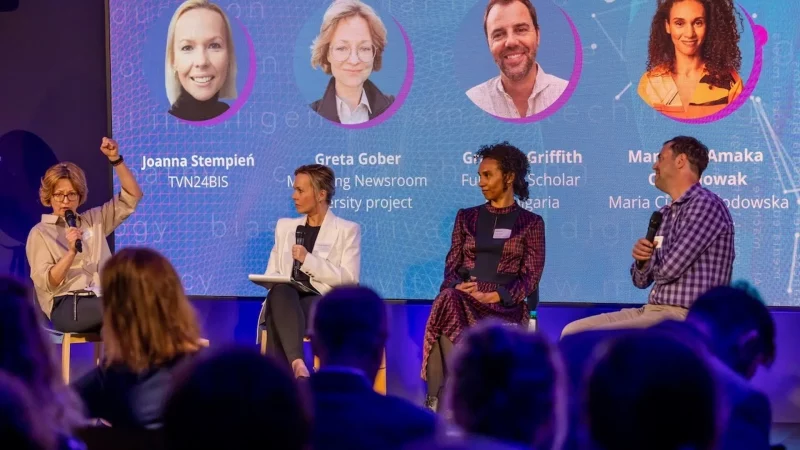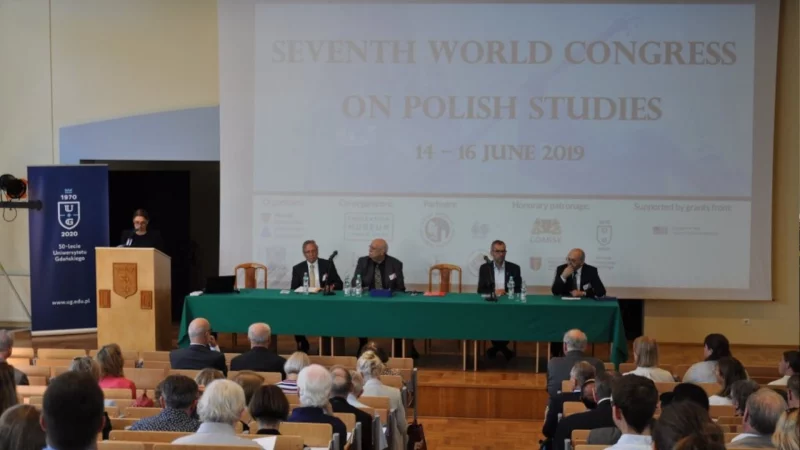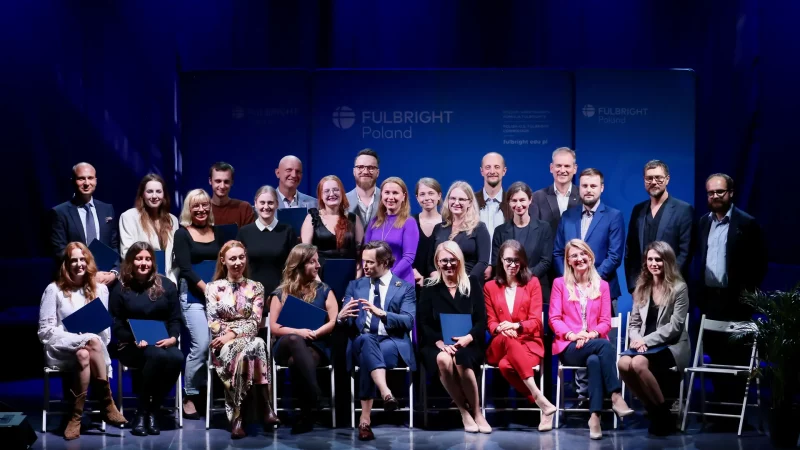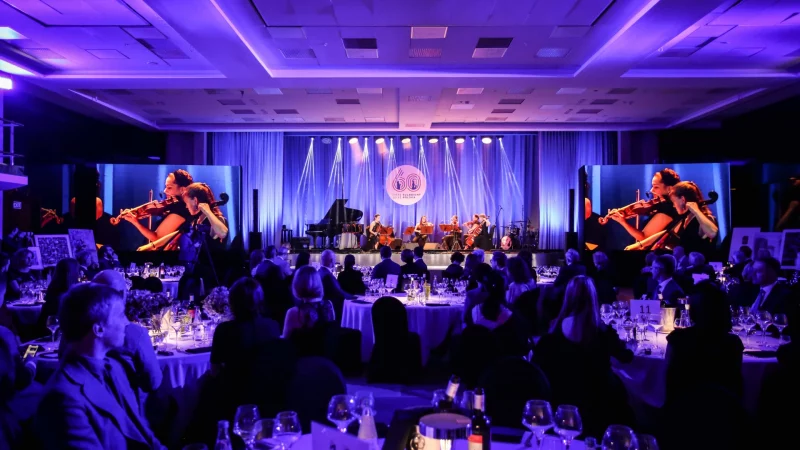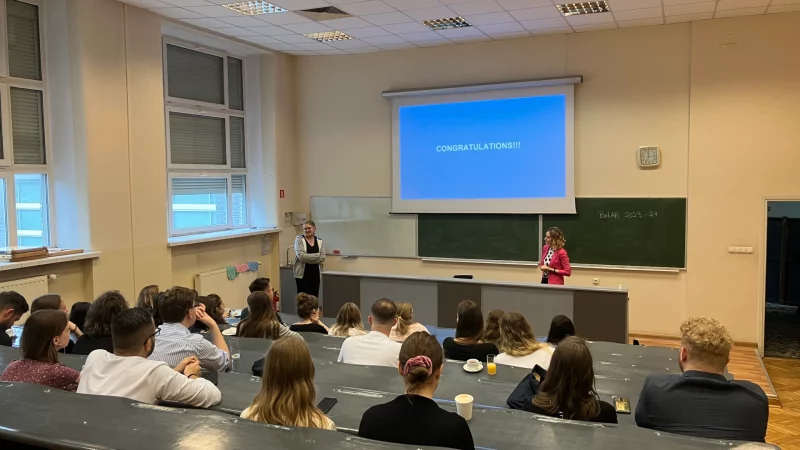On April 11-12th in Warsaw, we held a conference “Ethical, Smart and Safe: Navigating the Digital World of Tomorrow” devoted to the digital world of tomorrow, contemporary media and technologies. The conference was organized as a part of the 65th anniversary of the Fulbright Program in Poland and gathered around 120 participants.
Opening remarks included U.S. Ambassador to Poland Mark Brzezinski and Deputy Minister of the Ministry of Science and Higher Education Andrzej Szeptycki. Mark Brzezinski reminisced upon the significance of his Fulbright grant in Poland in the early 1990s. He talked about his research on constitutional law, saying how grateful he was to be able to experience “the strength of intellect, human spirit, commitment to the supremacy of law over power in the early 1990s.” He also thanked his fellow Fulbrighters for addressing current topics regarding the technology of tomorrow. “Great ideas often survive the test of time,” said the Ambassador, adding: “We are now on the 65th anniversary of Fulbright year. Fulbright was a really great idea.”
Deputy Minister Szeptycki emphasized the bilateral nature of the Polish-American exchange, highlighting how diverse and often unexpected topics – from highly specific regional research to the development of musical talent in marimba – attract American scientists, experts, and educators to our country. This shows that Poland often becomes a hub for building global careers. He also shared with the audience that the Ministry of Science and Higher Education has decided to increase their grant for the Fulbright Program by one million Polish zlotys, meaning that the Polish financial contribution now totals 6 million zlotys. In this anniversary year, he also wished the Fulbright Program in Poland continued success.
Conference participants listened to the keynote address by Professor Stephen Farnsworth, a political scientist from the University of Mary Washington in Virginia (USA), who is currently a Fulbright grantee at the University of Warsaw. Professor Farnsworth analyzed the significance of political humor in combating misinformation, citing examples of fake news during the COVID-19 pandemic and their verification in late-night comedy shows.
The conference included twenty two experts from Poland and the USA most of whom participated in panel discussions. Eighteen of the speakers were Fulbrighters. The conference covered topics, such as the importance of diversity for the quality of journalism, the social and ethical dimensions of artificial intelligence development, cybersecurity in the era of hybrid conflict, and various concepts of smart city development. The panels provided an opportunity to hear perspectives from individuals from different countries, generations, and with varying experiences. Emphasis was put on the importance of grassroots initiatives for media literacy, inclusion of minority perspectives, and addressing the needs of marginalized groups.
Participants also had an opportunity to take part in parallel thematic workshops. These included: Practicing fact-checking and combating misinformation based on specific real-life examples; learning about personal branding; understanding the relationship between digitalization and climate change; or trying to “design their lives” using UX (user experience) design methodology.
The overarching theme of both panels and workshops revolved around questions concerning the human factor in the development of the digital world of tomorrow. Specifically, how to navigate ethically and safely online, and how to create and utilize digital innovations while ensuring that human needs and values are not lost in the process. Is it even possible? Who creates technological innovations and who are their recipients? How to recognize fake news and how to defend against them, given their increasing ubiquity? Are there still boundaries between algorithmic decision-making and privacy? These are just a few of the broader questions that kept resurfacing in various shapes and forms throughout the conference.
The Fulbright Program is not only about science but also about the arts. In the evening, we hosted a networking reception that featured a musical performance by Fulbrighter Iwo Jedynecki, in a duet with Karolina Mikołajczyk, winners of the 2023 Paszporty Polityki award in the Classical Music category. Their performance included some interesting references to American culture. In addition to classics like Vivaldi’s “Summer,” the accordionist and violinist duo took us on a journey through famous Hollywood hits, performing their own arrangements of fragments from songs, such as “Singing in the Rain,” “Moon River,” “When You Wish Upon a Star,” and the theme from “The Pink Panther” series.
Networking was an essential part of the conference. Participants had a chance to reconnect with people they had already known and/or expand their networks through conversations on various topics. The Fulbright community never fails to impress us with their active participation in the event, willingness to continue collaboration, and social engagement, regardless of how much time has passed since their grants ended. One of the panelists summarized the conference as follows: “I wholeheartedly thank you for inviting me to actively participate in the conference. I met wonderful people, reunited with old friends, and once again, as always in meetings with Fulbrighters, I learned a lot.” Another emphasized: “Fulbright changed my life. I will always be deeply grateful for that.”
The Fulbright Program’s impact extends far beyond a mere Polish-American educational exchange. It’s also an opportunity to experience the diversity of another culture and way of life, which stays with Fulbrighters long after their grants end. Ambassador Brzezinski summarized the Fulbright Program’s impact by referring to the famous words of Benjamin Disraeli: “Travel teaches tolerance,” he said, adding: “That’s what Fulbright allows thousands of our fellow Americans and Polish citizens to do.” The power of building international contacts/relationships, rang loud throughout the conference in panels, workshops, questions, and answers, and rang loudest in the corridors during informal conversations and spirited discussions. Thank you for being with us!
We invite you to view the photo gallery from the event.


